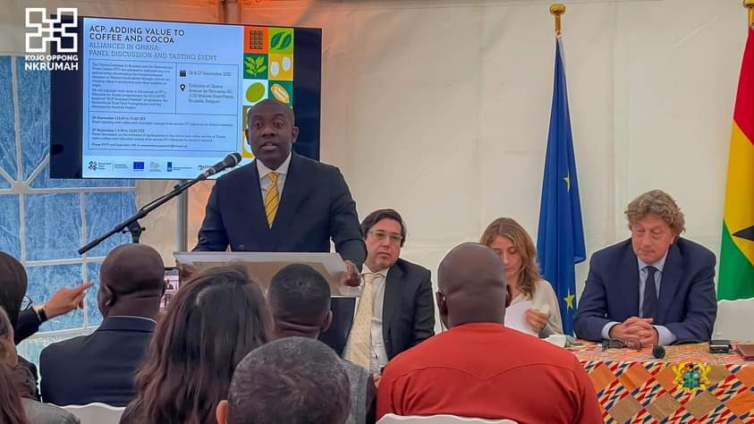Information Minister Kojo Oppong Nkrumah has called on the European Union (EU) to work with African, Caribbean and Pacific (ACP) countries to prevent its proposed ethical and sustainable supply chain rules from becoming a burden on the local cocoa and coffee industry.
According to him, though the new legislation is a way to drive better practices within the cocoa and coffee subsector, more importantly, the EU must work with ACP countries in achieving these sustainability standards else it risks putting players within the value chain out of business.
He made the call when he chaired a two-day forum on the future of Ghanaian cocoa and coffee value chains in the face of this new EU legislation at the “Alliances in Ghana: Coffee and Chocolate at the Table” in Brussels, Belgium.
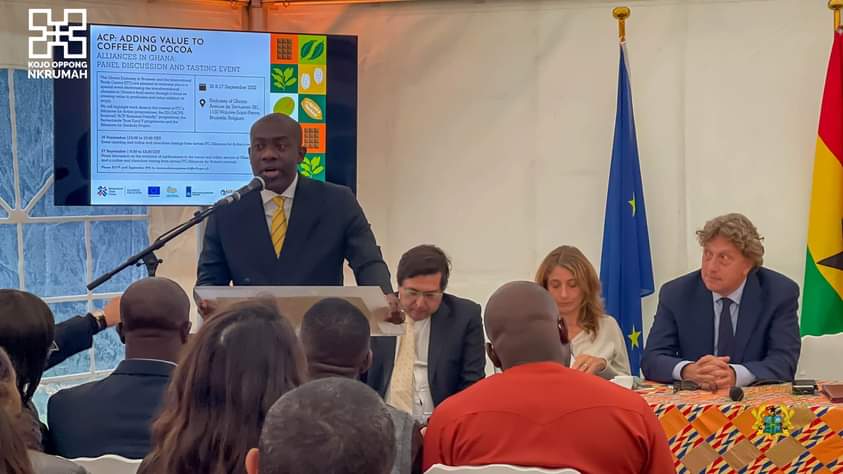
The forum was organised by the International Trade Centre (ITC) and the Ghanaian Mission in Brussels last week.
“At a time where farmlands are coming under threats for competing and more rewarding economic activities, sustainability is a matter that requires some more attention.
“By no means, however, should sustainability be used as a pretext to limit market accessibility. The exchange of best practices and technical assistance is necessary so that we can have a win-win situation in all of this.
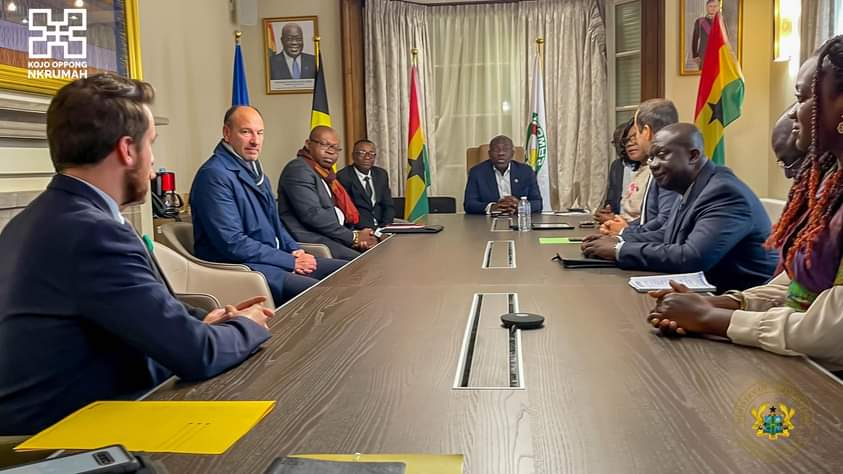
“Farmers deserve recompense for their hard work and should not be left out in any business or policy negotiation.
"Their social reality and cultural context must be considered when designing legislation so they may meet their demands and not bear a disproportionate burden for complying with the regulation,” he said.
EU lawmakers have backed a proposal for a law that will ban the sale of agriculture products linked to the destruction of forests and human rights violations.
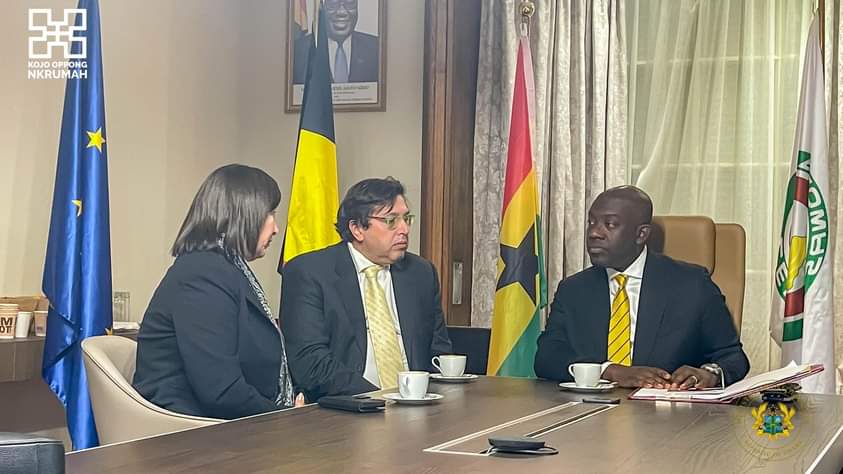
The bill was supported by 453 votes, to 57 with 123 abstentions. The EU Parliament will now start negotiations on the final text with EU member states.
Once approved, the law would force companies and producers to give assurances that products are deforestation-free and meet the EU’s sustainability standards.
Businesses will be forced to verify that agricultural goods sold in the EU have not been made on deforested or degraded land anywhere in the world.
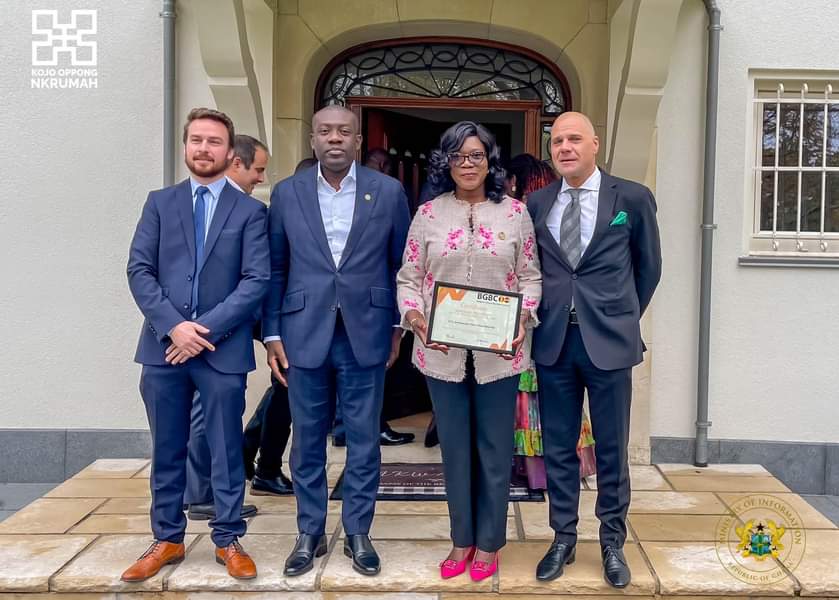
This, Mr Oppong Nkrumah said, could soon make Ghanaian cocoa and coffee unexportable to many international markets within the 27-nation bloc.
He said Ghana must act quickly to ensure the two industries meet the interests of European markets else millions of households and the economy, in general, could be significantly affected by this proposed legislation.
Latest Stories
-
U.S. and Israeli Strikes on Iran: A Racist, Colonialist Assault on Sovereignty
9 minutes -
Your unfair insinuations make me doubt your intentions even more – Prof Gyampo refutes OSP’s account of SML raid contact
15 minutes -
Prof Gyampo called and texted OSP during raid on SML – OSP claims
49 minutes -
Nigeria sprinter Favour Ofili switches allegiance to Turkey
50 minutes -
Ahwoi and Bartels-Kodwo families open residence to mourners following passing of Ama Adoma Bartels-Kodwo
54 minutes -
Mpox Outbreak: Western Regional Health Directorate springs into action
1 hour -
OSP rebuts Gyampo’s ‘vendetta’ allegation over investigation into Ofori-Atta
2 hours -
Ukraine still holds ground inside Russia’s Kursk, commander says
3 hours -
Nkwanta South MCE pays courtesy call on national Chief Imam, seeks prayers for peace
3 hours -
Kwasi Sibo helps power Real Oviedo to LaLiga promotion after 24-year wait
3 hours -
Broadcast and Build: How 2 of Ghana’s leading media giants are driving a bold socio-economic reset through strategic trade fairs
4 hours -
Actress Kalsoume Sinare named Ghana’s ambassador to Spain
4 hours -
Nkyinkyim says band music pays, but only with proper investment
5 hours -
Ecobank-JoyNews Habitat Fair: Day 3 promises mouth-watering discounts and great sales
5 hours -
Parents now request music lessons for their children from us – Nkyinkyim band
5 hours

